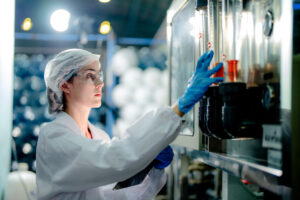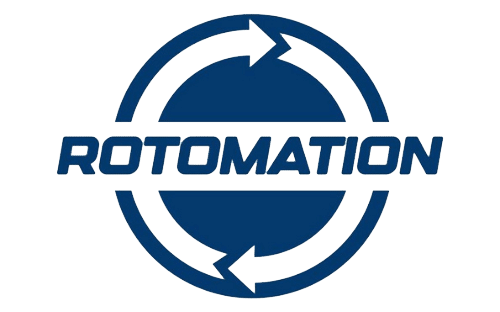Pneumatic Indexing Actuator Turns Starwheel in Automatic Canning Machine for Microbreweries

Microbreweries are proliferating around the country as more people develop a taste for craft beer. The smallest of these breweries sell their product entirely onsite, direct from the tap. However many brewery owners have found that they can expand their market by packaging their beer for sale off-premises. An industry has sprung up to provide the equipment needed to package beer in cans in quantities appropriate for microbreweries.
In a canning operation, cans are unloaded, rinsed, purged with CO2, and filled with beer before caps are loosely placed on top. A final CO2 blast minimizes oxygen. The seamer rotates the can, crimping the cap for a hermetic seal. After rinsing, cans are packaged. To feed cans individually into the seamer, a starwheel separates and positions them under the seamer head. The Rotomation pneumatic indexing actuator drives the starwheel, offering a simple, clean, and robust solution in this canning machine design.
Cleanliness is vital in breweries to prevent beer contamination. Regular washdowns, potentially involving high-pressure caustic solution jets, are needed for the beer-splashed canning machine. The standard X2 Indexing Actuator is not designed for this environment, risking damage to lubrication and internal components from the cleaning solution entering the actuator. Additionally, the manufacturer sought visual coherence with the machine’s natural-colored aluminum and stainless steel components, while the standard Rotomation indexer features black anodized external components.
Rotomation quickly put together a prototype actuator with protective seals added externally. This was used by the manufacturer to prove the concept of the machine. This being successful, a production version of the actuator with integrated seals and an improved bearing layout was developed and provided for final testing. This being successful, it was incorporated into the machine for sale. Additionally, the external parts were anodized without dye to match the color of the rest of the machine.
The Rotomation indexer provided a simple, accurate, and robust means of indexing a starwheel to feed cans after filling into the can seamer quickly and smoothly. The sealing method proved to be adequate to protect the internal parts of the indexer.
”Automation has revolutionized the way industries operate, making them more efficient and less prone to errors. With constant advancements, businesses of all sizes now have access to automation, making it crucial for them to stay updated in order to remain competitive.“
Norman Lane, President, Rotomation





